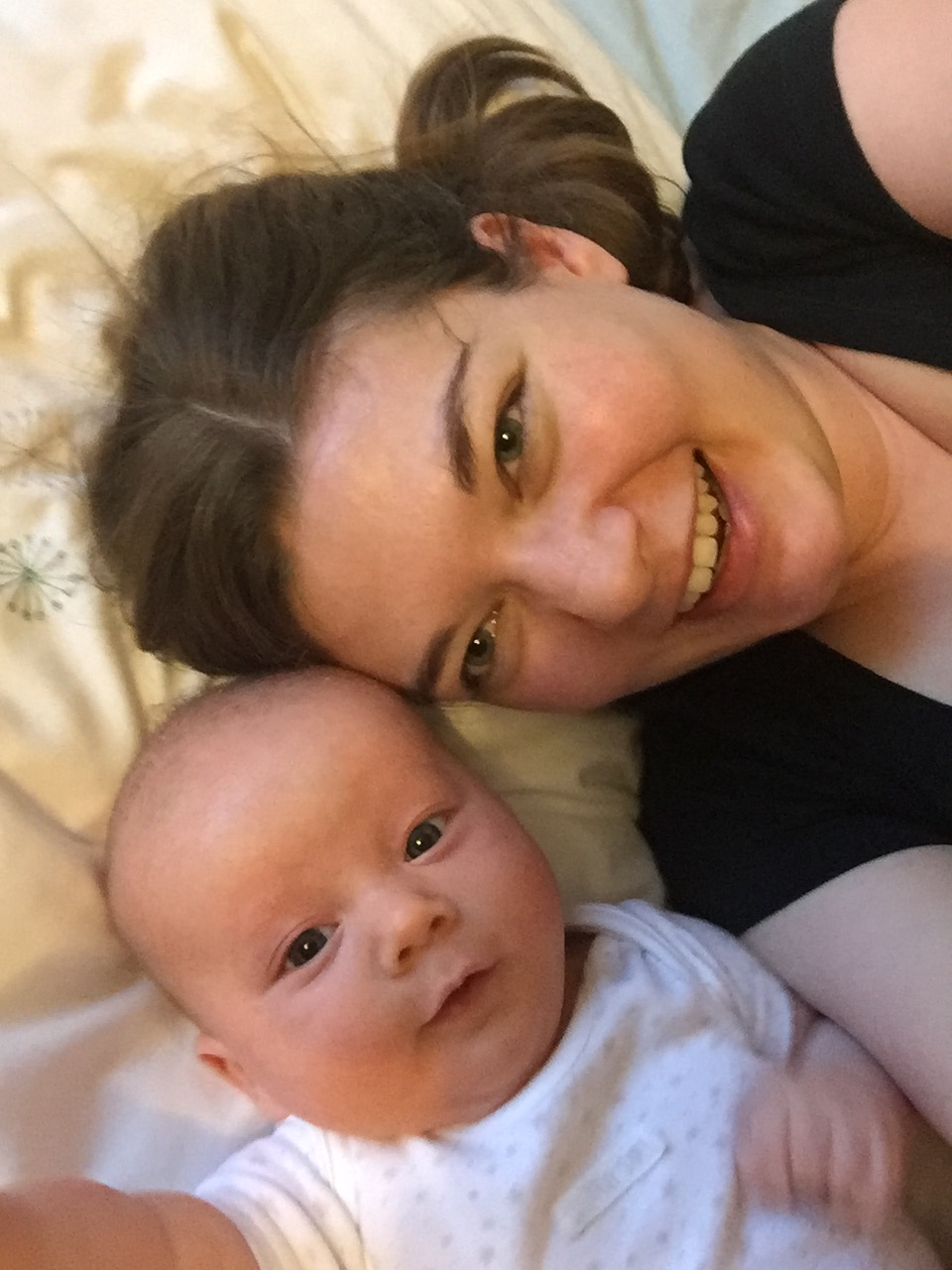 As a new mother, I am awestruck at the ability of my body to produce milk that can nourish my once tiny, now rapidly growing baby. For the first six months of life, this incredible substance was all the food and drink he needed. My body can change the milk’s composition depending on factors such as the time of day or even the weather to ensure he receives the best possible milk to make him sleepy at bedtime or to prevent him from becoming dehydrated on hot days. Amazing!
As a new mother, I am awestruck at the ability of my body to produce milk that can nourish my once tiny, now rapidly growing baby. For the first six months of life, this incredible substance was all the food and drink he needed. My body can change the milk’s composition depending on factors such as the time of day or even the weather to ensure he receives the best possible milk to make him sleepy at bedtime or to prevent him from becoming dehydrated on hot days. Amazing!
 Breastmilk is also a personalised medicine for my son, containing antibodies to build up his immune system. It reduces his risk of developing illnesses such as diarrhoea and respiratory infections and is likely to reduce the risk of him becoming obese or diabetic in later life. Breastfeeding prevents deaths from infectious diseases in low-income countries, and in high-income countries it protects against conditions such as sudden infant death syndrome. Breastfeeding is also beneficial for me as a mother, providing a reduced risk of breast cancer and probably also a reduced risk of diabetes and ovarian cancer.
Breastmilk is also a personalised medicine for my son, containing antibodies to build up his immune system. It reduces his risk of developing illnesses such as diarrhoea and respiratory infections and is likely to reduce the risk of him becoming obese or diabetic in later life. Breastfeeding prevents deaths from infectious diseases in low-income countries, and in high-income countries it protects against conditions such as sudden infant death syndrome. Breastfeeding is also beneficial for me as a mother, providing a reduced risk of breast cancer and probably also a reduced risk of diabetes and ovarian cancer.
The amazing way in which my body has first grown a tiny human and then produced such an incredible food supply for him leaves me totally in awe of God’s creation, reminding me of Psalm 139: “I praise you for I am fearfully and wonderfully made”.
I started my career as a cell biologist, studying cancer cell movement for my PhD. I now work as an NHS registrar in public health, so breastfeeding is a topic I find fascinating on many different levels. The more I learn about the science of infant feeding, the more I appreciate the beauty of creation. Understanding the science behind the seemingly magical power of breast milk doesn’t diminish my awe of God; rather it increases it.
Whenever my son is upset, I can often calm him down by feeding him. The effect is almost instant – he snuggles up to me and feeds and seems to be comforted by the warmth and intimacy of the feeding process. The passage below is a beautiful image of the way in which God relates to his people:
 “And you shall nurse, you shall be carried upon her hip, and bounced on her knees. As one whom his mother comforts, so I will comfort you; you shall be comforted in Jerusalem” (Isaiah 66:12)
“And you shall nurse, you shall be carried upon her hip, and bounced on her knees. As one whom his mother comforts, so I will comfort you; you shall be comforted in Jerusalem” (Isaiah 66:12)
In the Bible, nursing is associated with comfort and is used as a metaphor for God’s comfort. As Christians, we rely on God not only for His daily bread but also for his love and care for us.
Of course, there are downsides to breastfeeding too – at times it has been painful, it has given me infections and I can’t share feeding duties with my husband in the middle of the night! At one of my antenatal classes we were shown an incredible video of a tiny baby independently wiggling himself up his mother’s body to find his milk. We were told that babies know where their food supply is located and just how to latch on to access it. The film was very beautiful and I excitedly imagined the special moment when I could do the same with my son when he arrived. However, when my little bundle of joy was placed onto my tummy, he showed no interest at all in feeding and instead snuggled up to me and went to sleep. It took five days in hospital and the help of twenty different midwives for the both of us to learn how breastfeeding worked and to encourage him that sometimes eating was preferable to sleeping.
For some families, breastfeeding just isn’t possible and for mothers who are desperate to breastfeed this can be devastating. The pressure to breastfeed can be enormous and movements such as fedisbest.org provide much needed and potentially life-saving support to mothers and babies who are struggling with breastfeeding, emphasising the importance of formula feeding when breastfeeding is not possible. These mothers may need support from their friends, family and churches to encourage them that in these circumstances feeding the baby formula is absolutely the best course of action.
 The UK has one of the lowest rates of breastfeeding in the world. Although about 80% of new mothers breastfeed their babies at birth, only 50% are still giving their baby any breastmilk after 6 weeks and only 25% at 6 months. A recent survey of mothers who had stopped breastfeeding in the first six months showed that reasons included pain/difficulty (80%), lack of support from others (60%), public attitudes (40%) and embarrassment (20%).
The UK has one of the lowest rates of breastfeeding in the world. Although about 80% of new mothers breastfeed their babies at birth, only 50% are still giving their baby any breastmilk after 6 weeks and only 25% at 6 months. A recent survey of mothers who had stopped breastfeeding in the first six months showed that reasons included pain/difficulty (80%), lack of support from others (60%), public attitudes (40%) and embarrassment (20%).
So what can churches do to support new mothers who are breastfeeding? For many Christian mothers, church will be one of the first places they feed their baby in public. I remember wondering whether it would be appropriate for me to feed a baby during the service. Would it be considered immodest? How would I cover up with a wriggly baby, especially in the first few weeks when neither of us had quite got the hang of it?
Most churches provide much-needed support to families through meetings such as baby groups and dad breakfasts. Churches could also help to make women feel comfortable breastfeeding, through simple measures such as ‘breastfeeding welcome here’ posters or through direct encouragement from members of the staff team. This would help to give mothers the confidence to bring their babies to church, so they can continue to attend church during those first few difficult months and can continue to attend church as a family over the coming years.
Support for breastfeeding mothers is an area where science and faith can work hand in hand to improve the lives of both mothers and their babies.

© Clare Foster
Dr Clare Foster is currently on maternity leave from her post as a Public Health Registrar based at Barnsley Council. Clare started her career as a lab-based scientist, studying cancer cell movement for her PhD at Durham University. She then moved into office-based clinical research roles in Cambridge, studied for an MPhil in Public Health and was awarded a CLAHRC research fellowship. As an undergraduate, Clare set up a student group of Christians in Science (CiS) and was involved for many years with the work of CiS as a representative on the national CiS committee.




